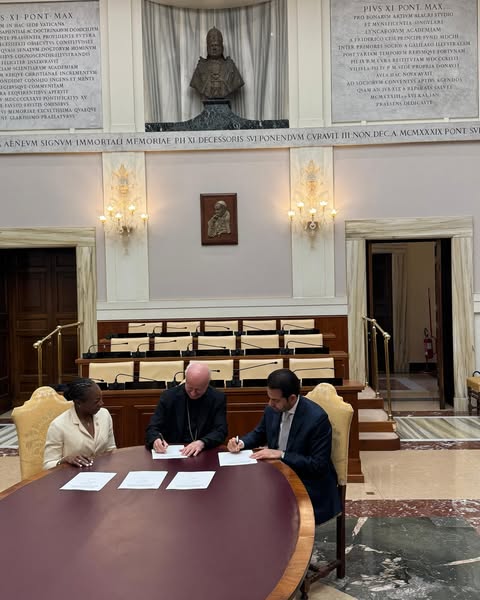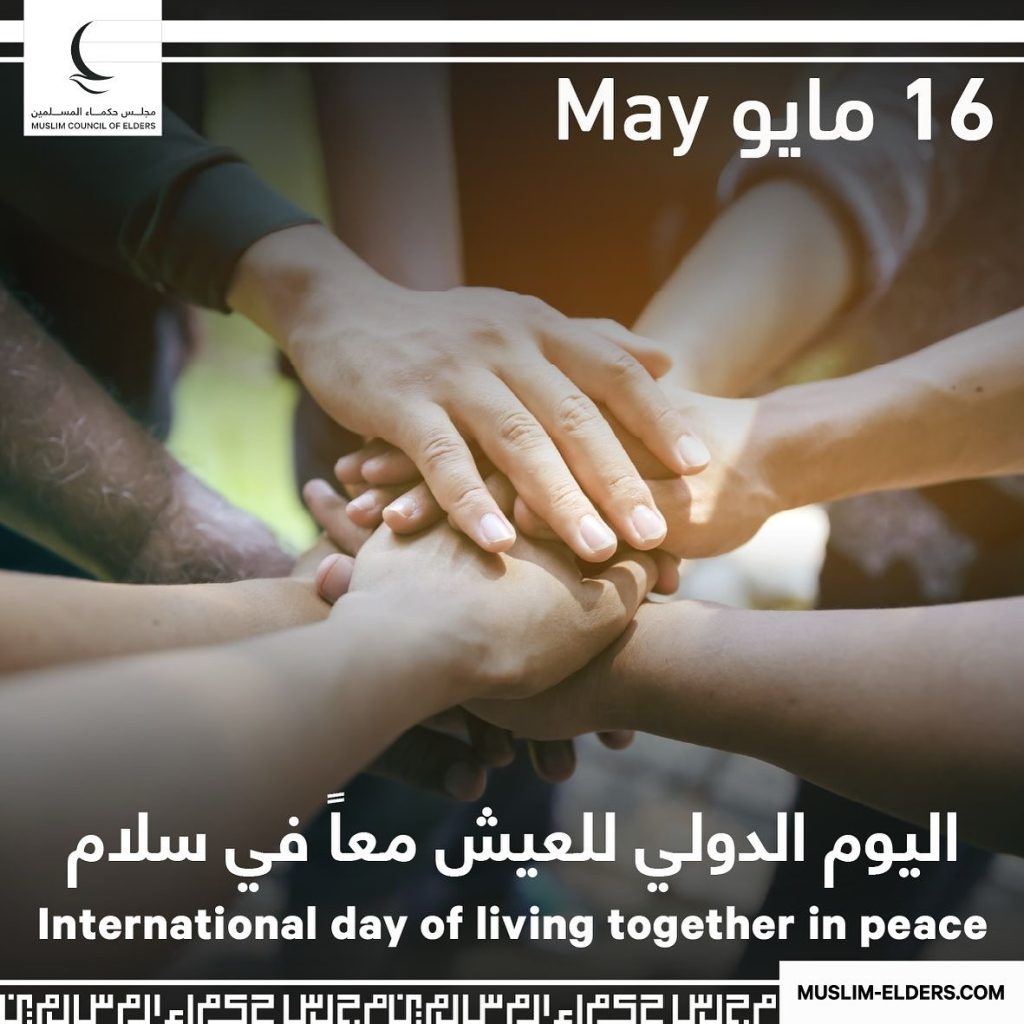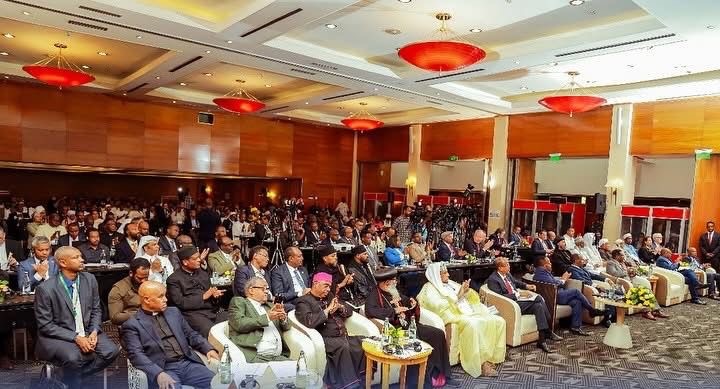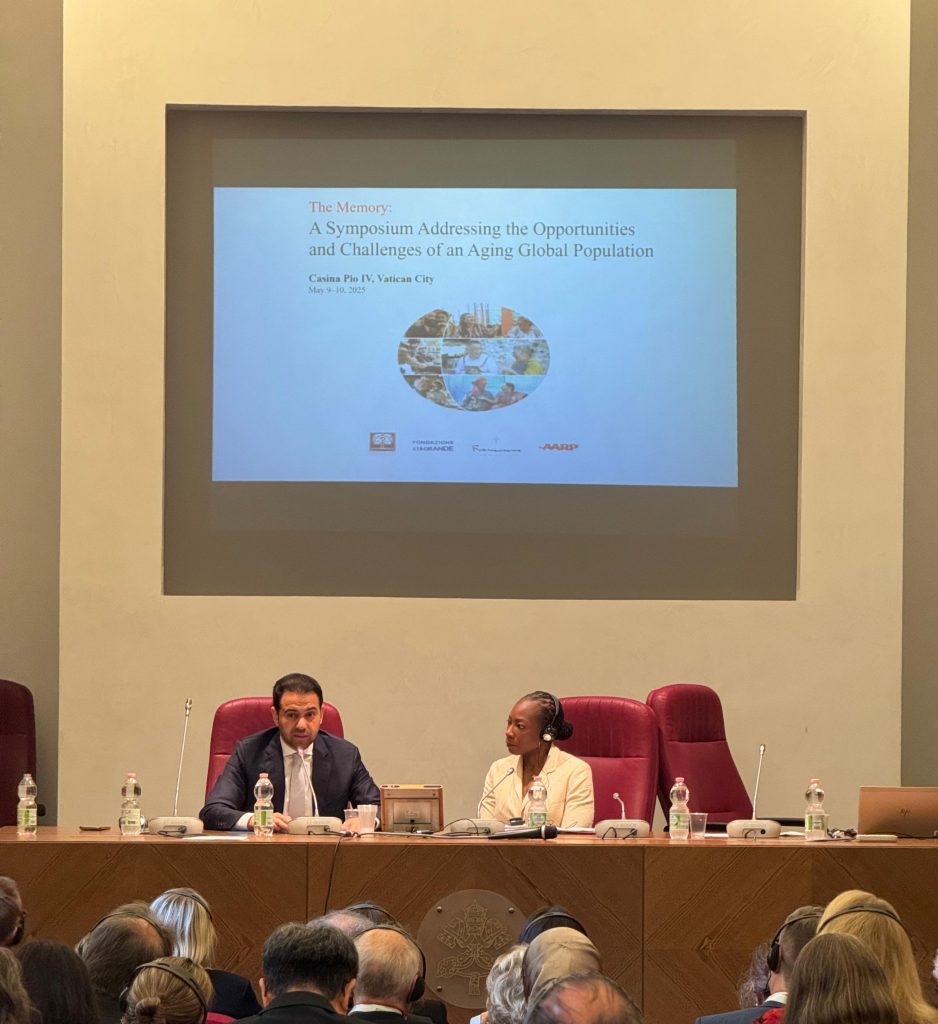Vatican’s First Official Initiative Under Pope Leo XIV: Muslim Council of Elders, Catholic Church, and AARP Launch Global Charter to Uphold the Rights and Dignity of Older Persons
Secretary-General of the Muslim Council of Elders Participates in Launch of Groundbreaking International Document to Support the Protection of the Elderly and Preserve Their Dignity
In the first official activity of the Vatican under the leadership of His Holiness Pope Leo XIV, the Muslim Council of Elders, the Pontifical Academy for Life, and the American Association of Retired Persons (AARP) jointly launched a landmark charter dedicated to supporting and safeguarding the rights and dignity of older persons. The initiative reflects a unified vision rooted in the urgent need to intensify joint efforts in empowering older adults, affirming their right to independence and full participation in society, and protecting them from all forms of discrimination, abuse, exploitation, and neglect.
The document was signed by His Excellency Judge Mohamed Abdelsalam, Secretary-General of the Muslim Council of Elders; His Eminence Archbishop Vincenzo Paglia, President of the Pontifical Academy for Life; and Dr. Myechia Minter-Jordan, President and CEO of AARP. It calls for enabling mechanisms that allow older persons to make informed choices for themselves and their families, and to have access to high-quality healthcare that is tailored to their individual needs and respects their personal preferences.
His Excellency Judge Mohamed Abdelsalam stated that the charter seeks to promote care and respect for the elderly, recognizing them as the memory keepers of human societies and custodians of cultural identity and accumulated experience. He emphasized that passing on wisdom and knowledge across generations strengthens societal resilience in times of crisis and lays the foundation for a balanced future. He also affirmed that the Muslim Council of Elders—headquartered in Abu Dhabi—will work to actively support and advance the values and principles set forth in this significant document.
As the first initiative of its kind in the field of elder care, the charter highlights the critical role of families in supporting older persons and affirms the shared moral and social responsibility of institutions, governments, and communities to promote the long-term well-being and prosperity of all age groups. It calls on global leaders, international organizations, and civil society institutions to engage with and support national policymakers in adopting more effective policies and practices that enhance the welfare of aging populations and contribute to the dignity and well-being of all, especially the elderly.
The signatories agreed to work together to translate the charter’s values and principles into tangible action by advocating for a world where older persons can live with dignity and purpose. They committed to strengthening efforts that promote scientific research, public policy, and interventions that enable older adults to live longer, healthier lives; counter age-based discrimination in all its forms; and push for the adoption of binding international legislation to protect the rights and dignity of older persons. The signatories also proposed the establishment of a dedicated international body or agency to champion the objectives outlined in the charter and to lay the foundations for a global framework that ushers in a new era in which older persons everywhere can live with dignity in flourishing communities.
The Secretary-General also took part in a high-level global symposium at the Vatican titled “The Memory: Addressing the Opportunities and Challenges of an Aging Global Population,” held from May 9 to 10. The event explored the relationship between memory and human dignity and addressed both the opportunities and challenges posed by global population aging. The symposium gathered prominent international officials, global leaders, and senior religious figures from around the world.










